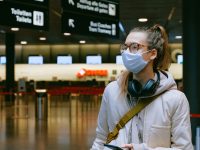|
Study is not enough without imagination, The International Year of Forests was celebrated in 2011; however –unfortunately– the following of this event was somewhat erratic. The University of Valencia worked really actively on the event, with conferences and exhibitions held at the Botanical Garden and some very interesting proposals, such as the educational poster entitled A Forest of Leaves, carried out jointly with Mètode journal, or the brilliant exhibition «Encapsulated Forests» by the artist Ana Donat. However, as already stated, overall the response was very inconsistent, and perhaps one reason why this event did not have a greater impact among other institutions may be due to the hard times we are going through. With the economic crisis, it seems everything has stopped, and particularly everything related to the environment. It is noteworthy that during the last election campaign hardly anyone mentioned global change (so publically present before the crisis), or nuclear issues (about which I believe extensive debate is due) so widely criticised following the dramatic events in Fukushima. Nonetheless, it seems that right now our only thought is to get over the crisis, and we do not care whether we do it one way or another. I believe Valencian society should think very carefully about which productive model is best, and to learn as much as possible from past events. In any case, it is a grave mistake to believe that returning to an economy based on real-estate construction and speculation can help save our crippled economy. Quite the contrary, we would fall right back into the same trap, but to make matters worse we are already well aware that although this kind of economic structure may provide some immediate profits, its lack of diversification would lead to a drastic impoverishment of our country in the near future. Western societies should consider that the only way to ensure true economic recovery –whose future is guaranteed– is through commitment to research, innovation and education. Our country should be a cradle of knowledge and we must be exporters of wisdom and excellence. The public universities of Valencia, having recently been awarded the status of Campus of International Excellence, are committed to such development, which may be slower, more costly and demanding but, also, much more venerable and rational. Indeed, this commitment has been made explicit, both on our first Campus of International Excellence VLC/Campus –focusing on health, sustainability and new technologies– and particularly on our second campus, HABITAT 5U, focusing on habitat in all its shapes and sizes, but emphasising those aspects that incorporate the added value of social innovation and quality of life, taking into account ecological impact and our relationship with nature, urban issues and spatial planning, without losing sight of the importance of landscape. |
 © M. Lorenzo «Valencian society should think very carefully about which productive model is best, and to learn as much as possible from past events»
|
|

On the left, Andreu Alfaro. Goethe and Science, 1982. Painted iron, 112 x 45 x 60 cm. |
«Sadly, in recent years the work ethic has been abandoned and we |
|
|
Sadly, in recent years the work ethic –the appreciation of endeavour– has been abandoned and we have fallen into a state of euphoria in a true carpe diem style which, as we have seen, has finally led us to the current state of affairs. We should all be self-critical, we should all reflect on how we are to blame, and especially public institutions. So, as a physician and a scientist, but also as Vice-Chancellor of the University of Valencia, I am reflecting on this question. We must re-invest in research, build new bridges between the university and the business sector, re-invest in quality innovation and actively support a knowledge-based economy. It is indefensible to shut down productive research programmes, dismiss researchers or waste resources, with the associated drama for the future of society and the social value that science holds. So let us get back on course, return to the path of learning and research and harvest its fruits: our investment. In his refreshing book Conversations with Goethe, the poet Johann Peter Eckermann reflects this thought of the author of Werther: «Study is not enough without imagination, and study and imagination together are not enough without natural disposition». Thus our future rests upon this conceptual tripod: on study, imagination and disposition. Within the scope of the university, our duty is to struggle to recover these three pillars and, once achieved, safeguard them so we never see another economic crisis like this. |
Search
© Mètode 2012 - 72. Online only. Beloved Botany - Winter 2011/12





